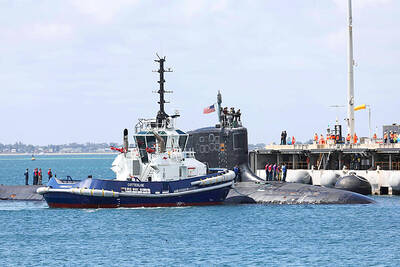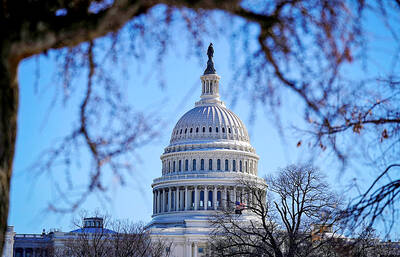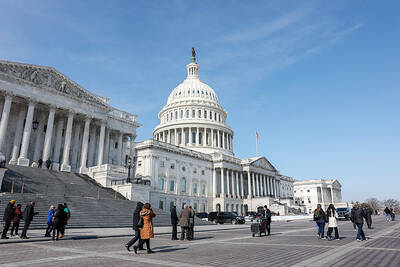The nation’s five special municipalities, home to 60 percent of the population, began operations yesterday, starting a new phase in Taiwan’s administrative history.
Taipei, New Taipei City (新北市, the proposed name of the upgraded Taipei County), Greater Taichung, Greater Tainan and Greater Kaohsiung began operating as megacities almost one month after the residents of the five municipalities, including Taipei City, chose their mayors in high-profile elections on Nov. 27.
In addition to Taipei City and New Taipei City, the other three cities were expanded through a merger of two administrative districts.
Greater Taichung is the result of a merger of Taichung City and Taichung County; Greater Tainan a merger of Tainan City and Tainan County; and Greater Kaohsiung a merger of Kaohsiung City and Kaohsiung County.
According to Minister of the Interior Jiang Yi-huah (江宜樺), the change is aimed at making the five megacities “spearheads of Taiwan’s regional development” and “cores of the three living areas of northern, central and southern Taiwan.”
The new system is not likely to affect the everyday life of the 13.7 million residents in the five cities, but integrating local governments and administrative branches are likely to present a big challenge in the cities where mergers took place.
Greater Tainan and Greater Kaohsiung both split their agencies into two parts to keep them in their original office buildings, while Greater Taichung opted for three office buildings in different parts of its administrative area.
Effective yesterday, townships (鄉鎮) and county-administered cities (市) are renamed “districts (區)” and villages (村) will be renamed “boroughs (里).” District chiefs are to be appointed by mayors rather than being elected, as was previously the case.
Township councils have been disbanded, which means thousands of township and city councilmen have lost their jobs.
Newly elected mayors have focused on the financial aspects of the new city governments. Taichung City Mayor Jason Hu (胡志強) publicly expressed concern that the city would be in financial trouble if budget allocating procedures and tax regulations were not reformed.
New Taipei City faced a different problem — trying to figure out what to call itself in English. Mayor-elect Eric Chu (朱立倫) has announced that he wanted the new city’s English name to be “New Taipei City,” because Sinbei means “new Taipei” in Chinese.
However, the move was blocked by the Ministry of the Interior for now, with Deputy Interior Minister Chien Tai-lang (簡太郎) saying the ministry would discuss the proposal with Chu at a later date.

CSBC Corp, Taiwan (台灣國際造船) yesterday released the first video documenting the submerged sea trials of Taiwan’s indigenous defense submarine prototype, the Hai Kun (海鯤), or Narwhal, showing underwater navigation and the launch of countermeasures. The footage shows the vessel’s first dive, steering and control system tests, and the raising and lowering of the periscope and antenna masts. It offered a rare look at the progress in the submarine’s sea acceptance tests. The Hai Kun carried out its first shallow-water diving trial late last month and has since completed four submerged tests, CSBC said. The newly released video compiles images recorded from Jan. 29 to

DETERRENCE EFFORTS: Washington and partners hope demonstrations of force would convince Beijing that military action against Taiwan would carry high costs The US is considering using HMAS Stirling in Western Australia as a forward base to strengthen its naval posture in a potential conflict with China, particularly over Taiwan, the Wall Street Journal reported on Saturday. As part of its Indo-Pacific strategy, Washington plans to deploy up to four nuclear-powered submarines at Stirling starting in 2027, providing a base near potential hot spots such as Taiwan and the South China Sea. The move also aims to enhance military integration with Pacific allies under the Australia-UK-US trilateral security partnership, the report said. Currently, US submarines operate from Guam, but the island could

RESTRAINTS: Should China’s actions pose any threat to Taiwan’s security, economic or social systems, China would be excluded from major financial institutions, the bill says The US House of Representatives on Monday passed the PROTECT Taiwan Act, which states that Washington would exclude China from participating in major global financial organizations if its actions directly threaten Taiwan’s security. The bill, proposed by Republican Representative Frank Lucas, passed with 395 votes in favor and two against. It stipulates that if China’s actions pose any threat to Taiwan’s security, economic or social systems, the US would, “to the maximum extent practicable,” exclude Beijing from international financial institutions, including the G20, the Bank for International Settlements and the Financial Stability Board. The bill makes it clear that China must be prepared

The partisan standoff over President William Lai’s (賴清德) proposed defense budget has raised questions about the nation’s ability to adequately fund its own defense, the US Congressional Research Service (CRS) said in a report released on Tuesday. The report, titled Taiwan: Defense and Military Issues, said the government has increased its defense budget at an average annual rate of 5 percent from 2019 to 2023, with about 2.5 percent of its GDP spent on defense in 2024. Lai in November last year proposed a special budget of about US$40 billion over eight years, and said he intends to increase defense spending to